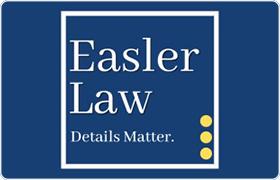Melbourne Real Estate Lawyer, Florida
Sponsored Law Firm
-
 x
x

Click For More Info:
-
Easler Law, PLLC
508 N. Harbor City Blvd. Melbourne, FL 32935» view mapReal Estate Law Details Matter.®
At Easler Law we recognize that small details can make a tremendous impact. Attorneys who take the time to listen carefully and understand their clients.
800-676-7130
James Michael Flick
✓ VERIFIEDJames J. Flick is an attorney, chartered life underwriter, chartered financial consultant, and former certified public accountant, with a law practice... (more)
Tanya White
✓ VERIFIEDHello, I’m Tanya White. Standing Up for You and Your Rights Having a legal issue is generally an unpleasant experience. It may mean that you have... (more)
Jim N. Turner
✓ VERIFIEDAs a law firm providing experienced Attorney - Lawyer legal services, assisting Orlando and Central Florida residents with Employment Law, Contract Re... (more)
Charles Roy Buist
✓ VERIFIEDCharles is a native of South Carolina. Early on in Charles’ life, he experienced the trauma associated with a horrific auto accident. When he was a ... (more)
John Arthur Leklem
✓ VERIFIEDJohn A. Leklem proudly serves Orlando, FL and the neighboring communities in the areas of condominiums, real estate, business, lawsuit & dispute law.
Matthew Charles Quattrochi
✓ VERIFIEDAttorney Quattrochi attended Barry University – Dwayne O. Andreas School of Law in Orlando, Florida. Attorney Quattrochi is a Connecticut native gr... (more)
 Andrew Easler Melbourne, FL
Andrew Easler Melbourne, FL Practice AreasExpertise
Practice AreasExpertise






